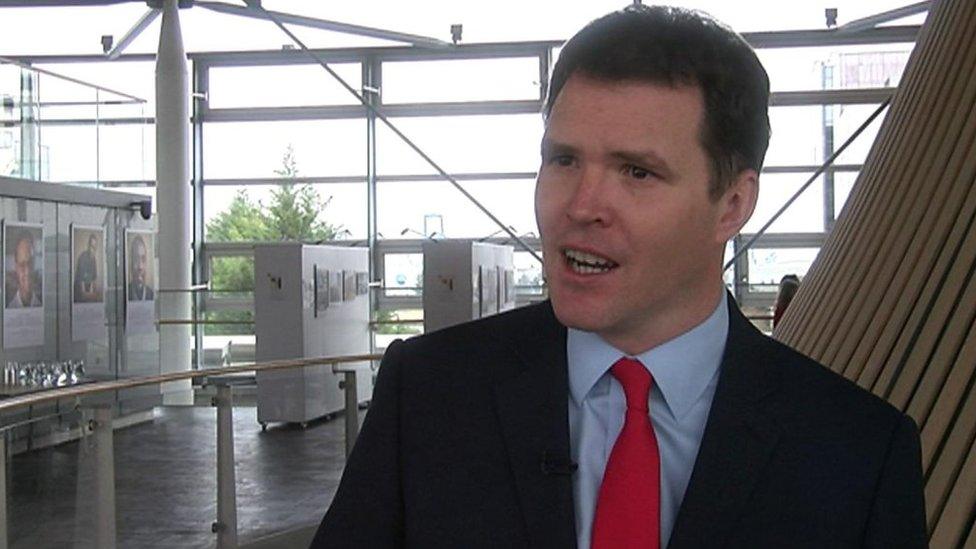Why are Welsh language community newspapers thriving?
- Published
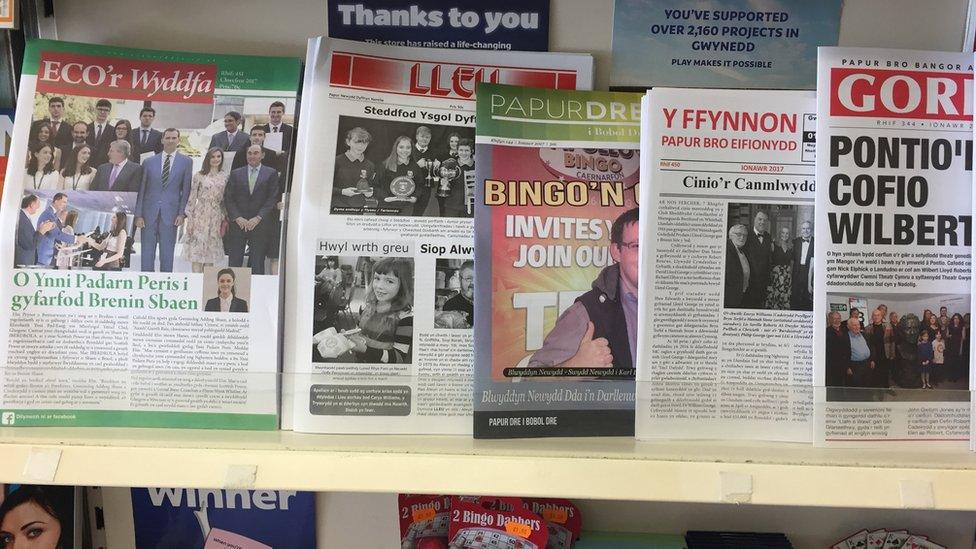
Papurau bro for sale in a Caernarfon newsagent
As Wales' media landscape undergoes massive upheaval, there is one part of the industry that has stayed reassuringly consistent.
For decades, the country's network of over 50 papurau bro (local community newspapers) - monthly, Welsh language ultra-local newspapers - has quietly recorded life across the nation.
Although sales of traditional newspapers are falling, with many titles being merged, these volunteer-run publications maintain a combined circulation of around 56,000 a month.
With four in the county of Ceredigion alone, and with a new paper about to launch in Abergavenny, the last area of Wales without one, the sector appears to be doing well.
One - the Llyn Peninsula's Llanw Llyn, external - is even employing staff.
More and more English language hyper local websites and papers are also springing up - titles like Caerphilly Observer, external and Wrexham.com, external.
So what is behind the success of the micro-local publications?
For Glyn Tomos, editor of Caernarfon's Papur Dre, external, the answer is simple and in line with the approach of mainstream newspapers and magazines.
"People need to see themselves in the paper," he said. "That's how we measure success. And if people don't see themselves, they won't buy it."
His paper is bought by 1,200 people every month, roughly one in five of Caernarfon's adult population.
A large team of volunteers deliver door to door, while local adverts fill the pages.
"People are very supportive," he said. "Information is important, and increasingly you find local papers disappearing, which is a tragedy.
"Our emphasis is very much on the people of Caernarfon, how people live and the characters of the place."
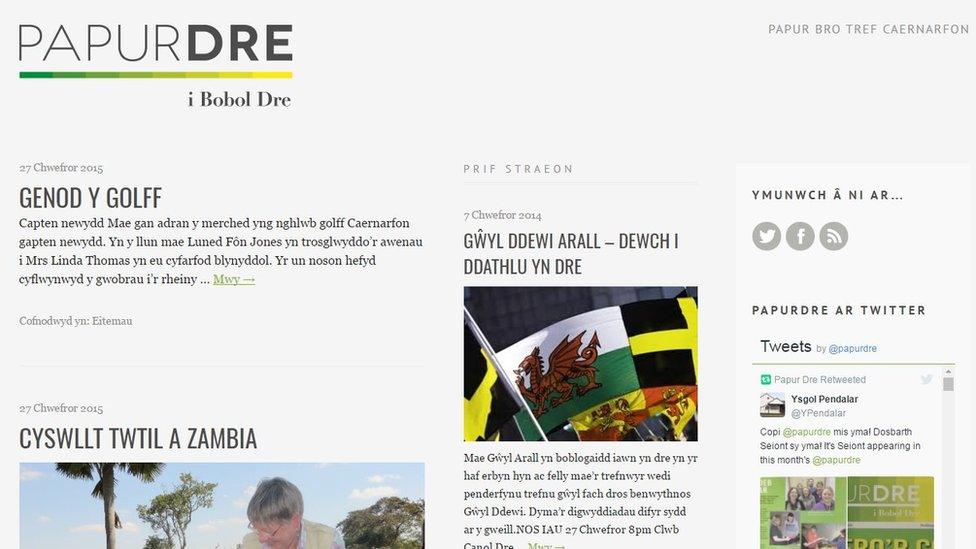
Caernarfon's Papur Dre is sold door to door by a team of volunteers
The Welsh Government clearly values papurau bro too.
It gave £88,880 to 52 papers last year, and its 2016 Welsh Language annual report praised an increase in the circulation of the papers as "very encouraging", saying "there is an important place for them in the life of Welsh communities".
Hyper local news media, both Welsh and English, are at the heart of the Welsh Assembly's Digital News and Information Taskforce, external plans to better communicate what the government does.
In addition to local politics, papurau bro publish a mixture of chapels, WI, churches, and schools - the equivalent of the old-fashioned 'parish pump' newsletter.
But some, especially the digital versions, are becoming more newsy.
Emma Meese, one of the editors of Cardiff's Pobl Caerdydd, external, claims her publication has broken several stories.
"We first spotted and raised the issue of Queen Street station's new-look signs being in English. It turned into a big online campaign. We've also campaigned for new Welsh schools for Grangetown.
"Our readers are incredibly active on Twitter, and we are reaching different audiences."
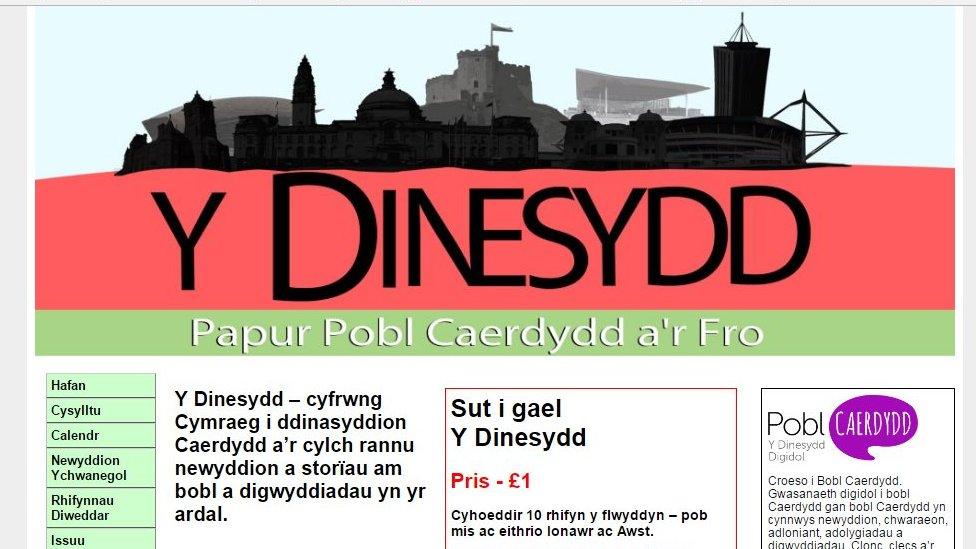
Wales' first papur bro, Y Dinesydd, has now gone digital
Emma, also manager of Cardiff University's Centre for Community Journalism, external, thinks Wales is fortunate to have papurau bro.
"They know their audience and they know everybody in their community," she said. "That's what people love about them."
The centre is now working to help existing papers go digital and broaden their appeal, as well as launching two new digital papurau bro, in Abergavenny and Newport.
Pobl Llanelli (Llanelli People) and Pobl Caerfyrddin (Carmarthen People) are also on the horizon.
'Unique'
Megan Jones runs an annual papurau bro conference in Aberystwyth on behalf of the Welsh Government, and chairs the town's Yr Angor (The Anchor) paper.
For her, papurau bro are successful because they fulfil a need for people to read about themselves in Welsh - and are a crucial tool for protecting the language.
"There are so many English language news sources," she said. "But papurau bro are unique. They reach the people they want to reach."
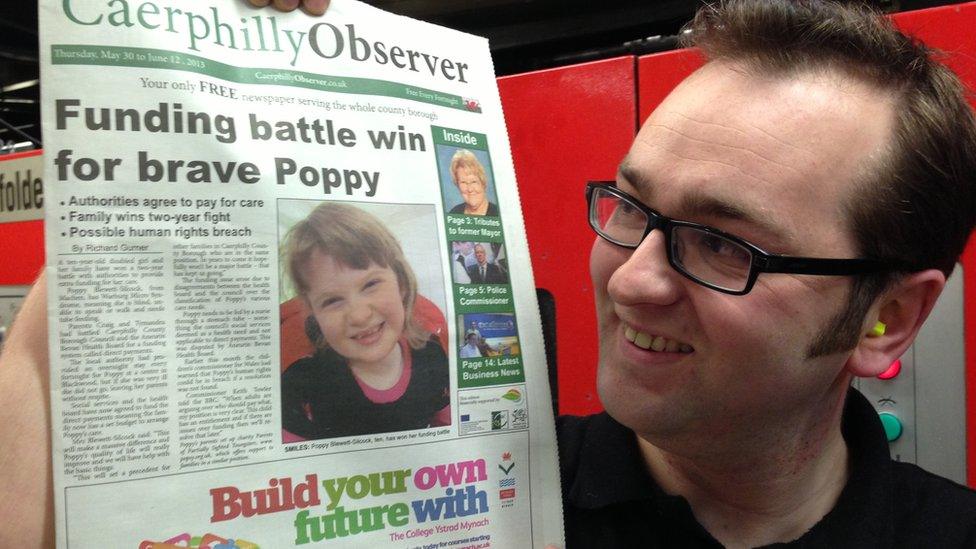
Editor Richard Gurner with the first edition of the Caerphilly Observer
But over in Caerphilly, the Observer, external proves the papurau bro approach can also work for an English language audience.
Editor and former Brighton Argus reporter Richard Gurner set the paper up after becoming "frustrated" at not being able to find out what was going on at home.
The paper now has three paid staff, a print run of 10,000 and has won two Wales Media Awards.
Richard says that on print day people queue up for their copies, which are also handed out from old-fashioned distribution points and door to door.
"It's back to basics," he said. "People want to see themselves reflected in their media.
"We use as many pictures as possible. That's the sort of coverage people want. But at the same time, we cover the issues that affect the community."
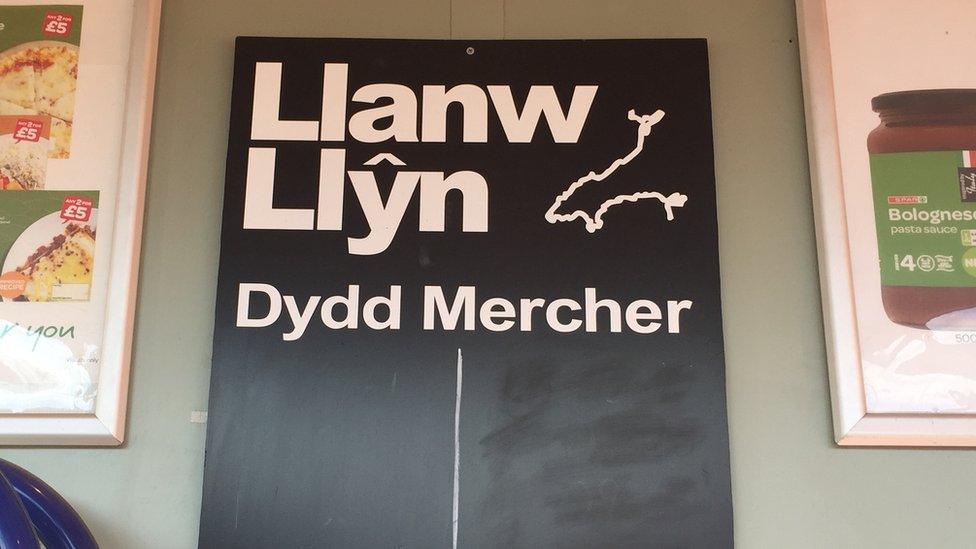
Monthly community newspapers like Llanw Llyn are eagerly anticipated
But it's not all plain sailing.
Readership at Caernarfon's Papur Dre has gone down from 1,600 to 1,200. Its commitment to sell through local newsagents has seen circulation drop as shops close.
But the 18-year-old paper - one of the youngest papurau bro - has modernised to attract new readers, and is now full colour.
All articles are online, on an app, as well as on Facebook and Twitter.
"We had to adapt. People want to see colour, and the paper needs to look well in the paper shop," Glyn Tomos said.
"It's about getting the balance right. People still like to have a paper in their hands."
Like many, it also has a dwindling numbers of volunteers.
"We started it when we in our late 40s - and we are our early 60s now," Glyn explained. "So it's about getting the younger generation involved.
"If they want to take over the time will come in the next five years."
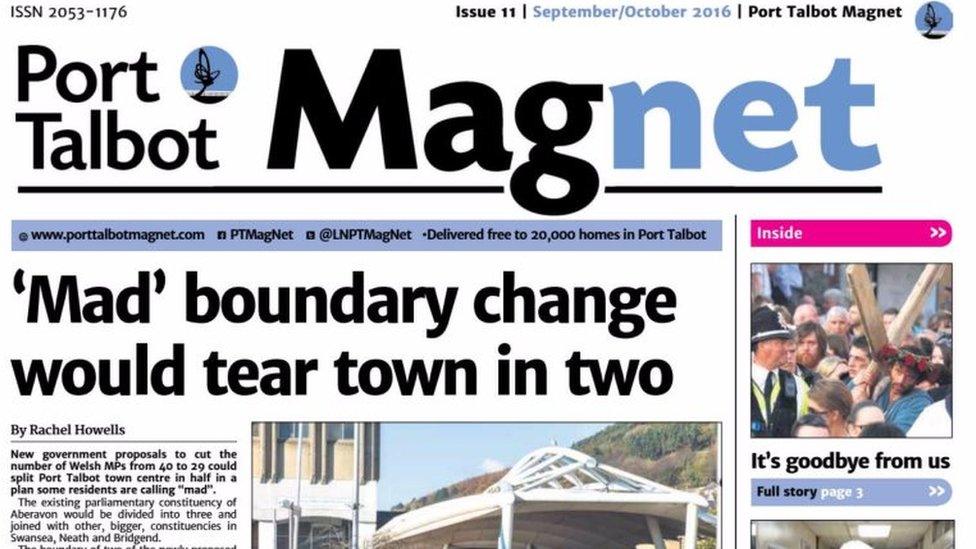
The last edition of the Port Talbot Magnet; the community paper shut last year due to financial problems
And although the Caerphilly Observer is doing well, many English hyper locals face an uphill struggle to make ends meet.
The popular Port Talbot Magnet closed last October, external, citing uncertainty over the future of the town's steelworks and its impact on advertising sales.
The town has gone from having ten local reporters in the 1970s to just one today.
"Without journalists, who is finding out what's happening, and letting everybody know about it?" Magnet editor Rachel Howells has said.
"We can't rely on Facebook for the most important things that affect our lives. We need independent journalists and their skills."
Emma Meese agrees that papurau bro - and their English language hyper local equivalents - are more important than ever.
"How does the Welsh assembly get its news across? How does it get it out to all four corners of the country?," she said.
"We are seeing more and more evidence that hyper locals are plugging a gap for communities with no access to local news and information."
- Published14 March 2017
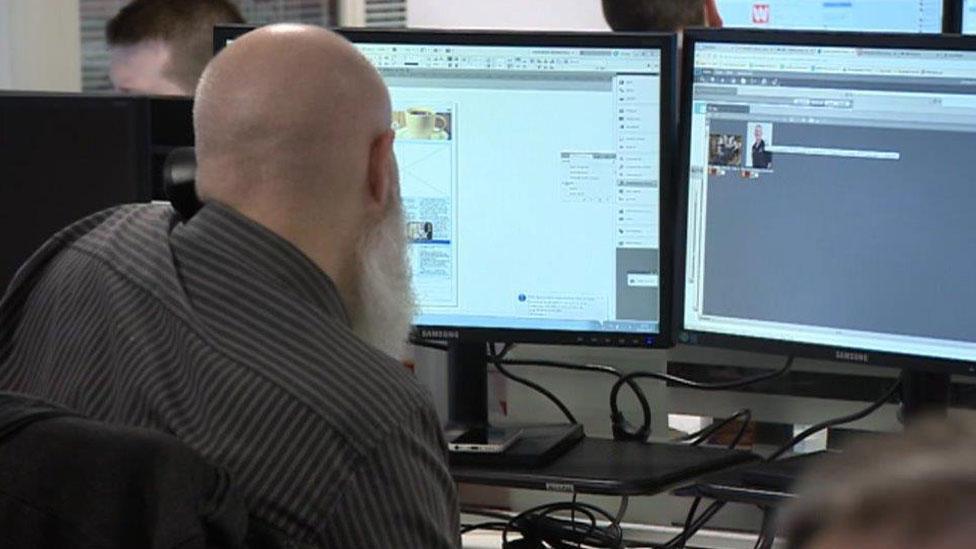
- Published9 March 2017

- Published27 February 2017
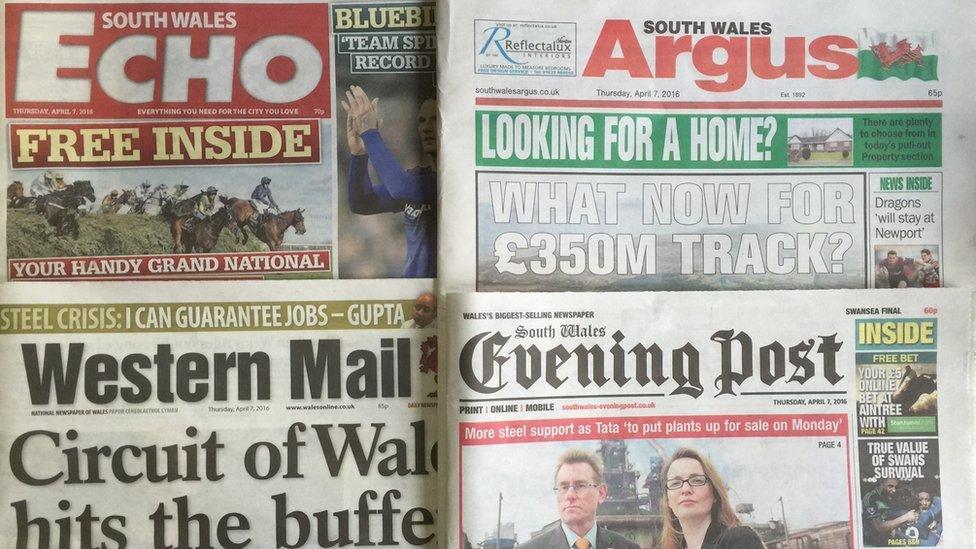
- Published4 January 2017
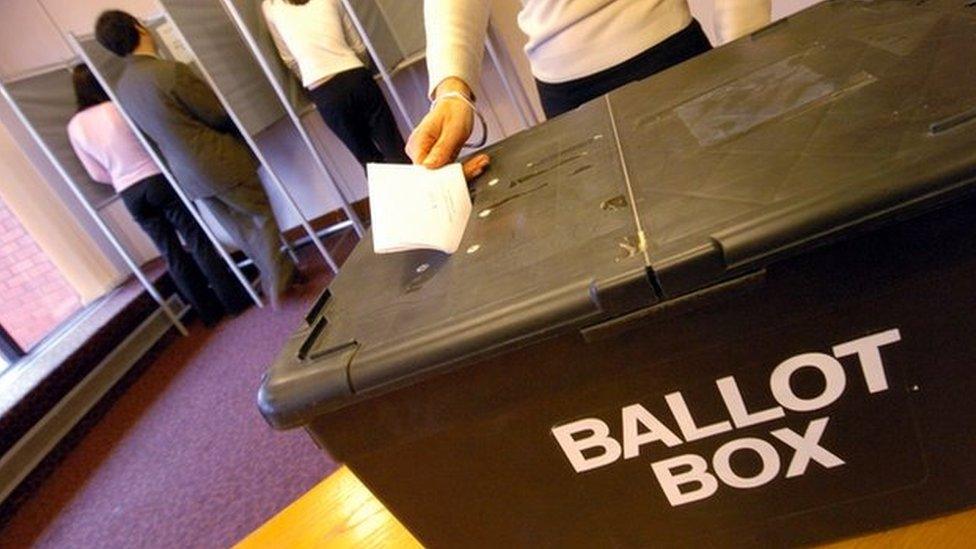
- Published7 April 2016
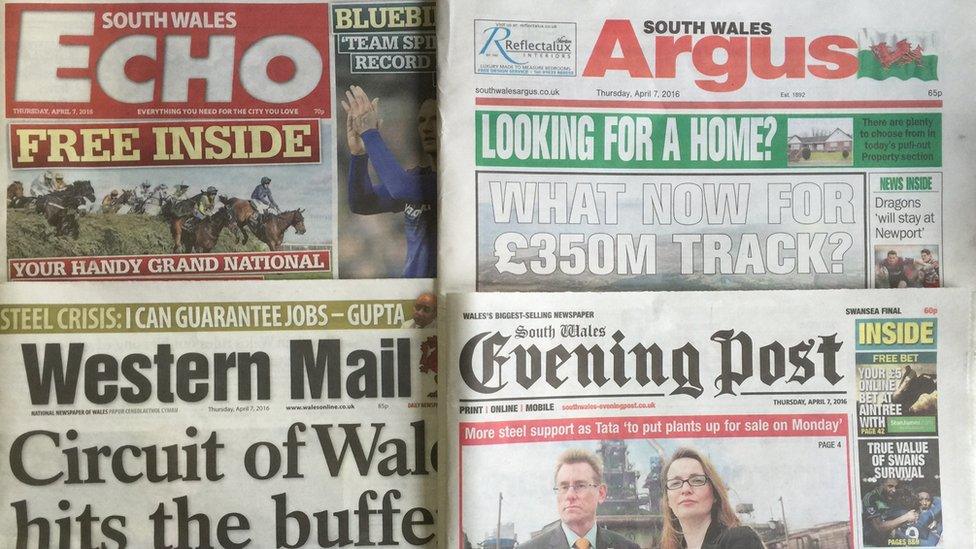
- Published23 February 2017
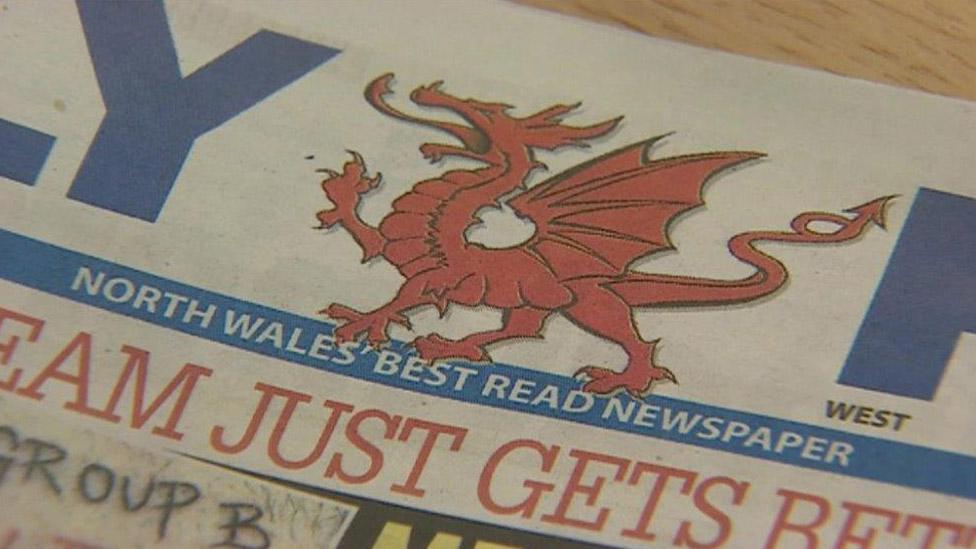
- Published14 March 2017
